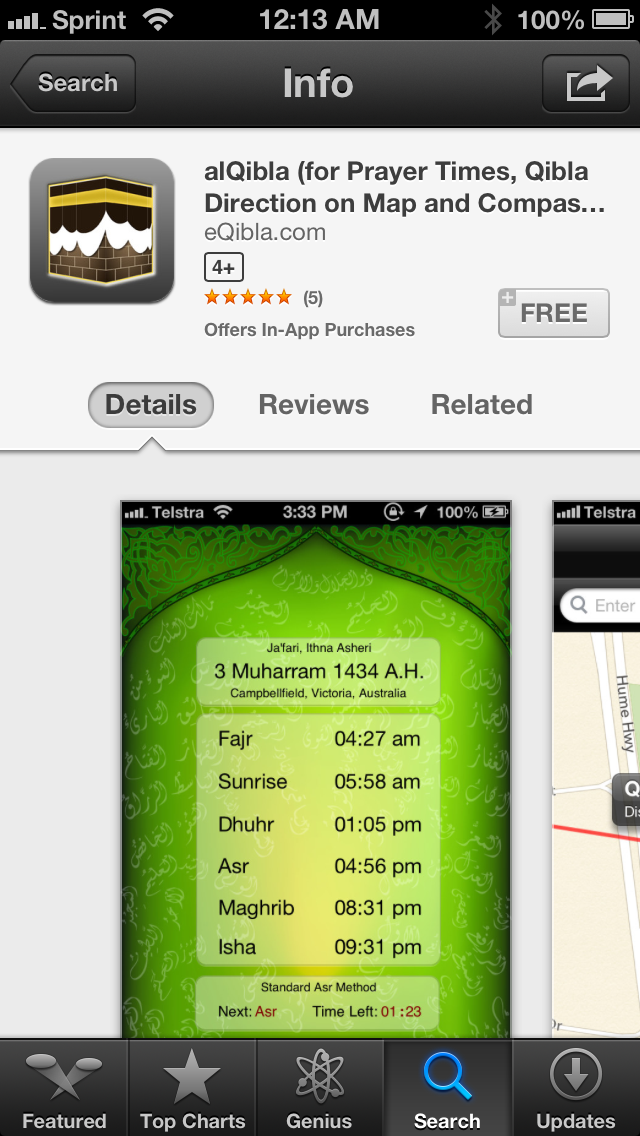Need to check a Bible verse or find out the direction of Mecca when preparing for prayer? There’s an app for that.
From Islam to Judaism, religious students of all faiths at the University are turning to smartphone apps to help fill their daily devotional needs in today’s increasingly technological world.
Petroleum engineering senior Ibrahem AlKubaisy said he enjoys incorporating religious apps into his daily life because they make his phone experience more useful.
One app AlKubaisy uses is alQibla, which he said is a free two-in-one app that shows the user the direction of the Islamic holy city of Mecca as well as reminders of the five daily prayer times of the Islamic faith. The app sends notifications to the user when it is time for them to pray at dawn, noon, afternoon, sunset and after sunset.
AlKubaisy also uses a free Quran app when he does not have access to a physical copy of the Islamic text.
“Sometimes you become lazy, and instead of having to go back home to get a book you can just take your phone out,” AlKubaisy said.
AlKubaisy’s Quran app has translations and a dictionary for various words that may have a different meaning now than they did when the Quran was first written, he said.
Similar to AlKubaisy, Nick May, child and family studies sophomore, uses the Daily Torah app on his iPhone when he needs to check a verse of the Jewish text in English or Hebrew.
May said although the app is convenient, he enjoys the experience of reading a physical copy of the Torah over reading verses on his phone.
“I think [the physical copy] is cooler because it forces you to read through every little thing that’s in it,” May said. “With this, you just find the verse you want and boom, that’s it.”
AlKubaisy agreed with May that he prefers reading a physical text to reading an app.
“I feel more connected with the book because you’re using it for one purpose,” AlKubaisy said. “With my phone, I could get a text or call and it will distract me.”
Candace Elenez, interdisciplinary studies senior and treasurer of the University’s chapter of Christian sorority Sigma Phi Lambda, said she doesn’t see much of a difference between using her Bible app and a physical copy.
“It’s the same words, just a different medium,” Elenez said.
Other apps AlKubaisy use focus on certain seasons of the faith, such as Ramadan, the Islamic month of fasting and one of the Five Pillars of the faith.
AlKubaisy said Ramadan is a time when Muslims try to perform good deeds for others and the community.
“[The app] has useful reminders of the things you can do, either between you and God or asking if you’ve donated today,” AlKubaisy said.
AlKubaisy said he has noticed an increase in Islamic leaders who use technology to connect with the younger generation, particularly since the Arab Spring, which was largely fueled by Twitter users.
Elenez said she has also noticed a movement toward social media and technology in her own church, Istrouma Baptist.
The University’s chapter of Sigma Phi Lambda has employed the use of social media and apps like Instagram to good results, including new pledges who noticed the sorority’s Internet activity and decided to join, she said.
“I’m a technology person in general, and I think it’s beneficial for whatever you’re doing,” Elenez said.
“It’s the same words, just a different medium.”




